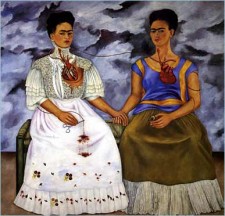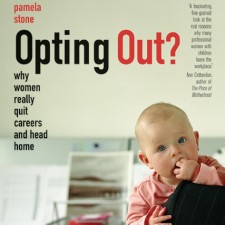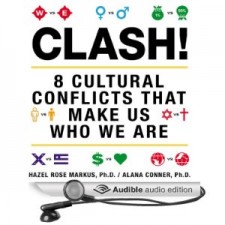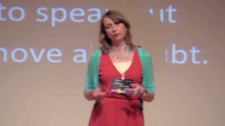2014
9/17. “Split Identities,” To the Best of Our Knowledge, Public Radio International.
7/14. “How to Thrive in a Multicultural World,” Center for Culture, Mind, and the Brain, University of Michigan, Ann Arbor.
7/5. “Clash! How to Thrive in a Multicultural World,” European Association for Social Psychology, Culture and Psychology: Insights from the European Context, Leuven, Belgium.
6/6. “Clash! How to Thrive in a Multicultural World,” Congreso Chileno, Universidad Adolfo Ibanez Escuela de Psicologia, Chile.
3/7. “Clash! How to Thrive in a Multicultural World,” Society for Consumer Psychology. Miami, Florida.
3/4. “How To Lean On Men To Improve Work for Everybody,” Goodby, Silverstein & Partners, San Francisco, CA, 11:30 am.
1/28. “Why the Cultures of Women and STEM Clash and How To Break the Cycle,” Stanford WISE Roundtables, Stanford University, 101-102 Varian (Physics/Astrophysics), 452 Lomita Mall, 4:15-5:45 pm PT.
1/16. “Clash! Eight Cultural Conflicts that Make us Who We Are,” Clayman Institute for Women and Gender, Stanford University.
2013
12/3. “Why Cultures Clash and How to Break the Cycle,” Winning in Today’s Global Environment Conference, Mercer Management, Seattle, WA, 11:00 am-12:00 pm PT.
11/20. “Clash! 8 Cultural Conflicts that Make Us Who We Are,” Faculty Fellows Research Chautauqua, Stanford University.
11/13. “How to Thrive in the Multicultural World: The Two-Self Solution,” Institute of Personality and Social Research (IPSR), University of California, Berkeley.
10/24. “Why Your Cultures Clash and How To Break the Cycle” video, Carleton College, Northfield, MN, 7:00-8:00 pm CT.
10/23. “Why Cultures Clash and What You Can Do About It,” Department of Psychology, University of Minnesota, Minneapolis, MN, 12:00-1:30 pm.
10/17. “How Women Lead” panel discussion video, The 3% Conference, San Francisco, CA, 4:00-4:45 pm PT.
10/9. “How to Thrive in the Multicultural World: The Two-Self Solution,” The American Comenius Course, University of Groningen, The Netherlands.
9/25. Town Hall Seattle, Seattle, WA, 7:30 pm PDT.
9/10. “Harnessing Culture Clashes for Good,” Stanford Nonprofit Management Institute, Stanford, CA, 10:00 am PDT.
7/16. “Ronn Owens Show” audio, KGO 810 San Francisco, 11:00 am PDT.
7/15. “Cultural Psychology: Accomplishments So Far and Future Directions,” Center for Culture, Mind, and the Brain, University of Michigan, Ann Arbor.
7/10. “Topical Currents” audio, WLRN Miami, 10:00 am PDT/1:00 pm EDT.
7/3. “The Joy Cardin Show” audio WPR, 8:00 am CDT.
6/29. TEDx Pacific Palisades video, 11:30 am PDT.
6/11. “Financial $pectrum” audio, 8:00 am PDT.
5/29. Invent Your Future Webinar, 12:00-1:00 pm PDT.
5/28. “Kari Moran’s BookRadio Show” audio, 1:00 pm PDT.
5/23. KPCW “Community Voices” audio, Park City, Utah, 8:00-8:30 am PDT.
5/20. KERA’s “THINK” audio, Dallas, TX, 10:00-11:00 am PDT.
5/16. MSNBC’s “The Cycle” video, 12:30-12:40 pm PDT.
5/16. “Conversations” with Lizz Sommars audio, KISW, 6:15-6:30 pm PDT.
5/13. Dr. Alvin Augustus Jones, 9:00-9:15 am PDT.
5/13. “Studio Tulsa” audio, KWGS, 11:30 am PDT.
5/13. “Chuck Morse Speaks,” IRN Radio Network, 8:00-9:00 am PDT.
5/12. “Stu Taylor on Business” audio, Lexington, MA, 7:00 pm PDT.
5/3. “The Rusty Humphries Show” audio Phoenix, AZ, 2:30-2:40 pm PDT.
5/3. Hazel on WNYC’s “The Brian Lehrer Show” audio, New York City, 8:00-8:20 am PDT.
4/25. Hazel Rose Markus, “Clash! 8 Cultural Conflicts That Make Us Who We Are,” Annual Distinguished Lecture in Multicultural Psychology, Michigan State University, East Lansing.
3/14. Hazel Rose Markus, “Inequality, Social Class, and Self,” Distinguished Lecture Series, Department of Psychological Science, University of Missouri at Columbia.
2/12. Alana Conner, “Found in Translation: How to Communicate about Social Science to Everyone,” Social Area Meeting, Stanford University Department of Psychology.
2012
10/12. Alana Conner and Hazel Rose Markus, “Interdependent Medicine,” Cultures, Minds, and Medicines Seminar, Stanford University Department of Anthropology.
8/4. Alana Conner, “Choice in China, India, and Working-Class America: Different Selves, Different Effects,” Yale China India Insights Conference, Yale School of Management. video









